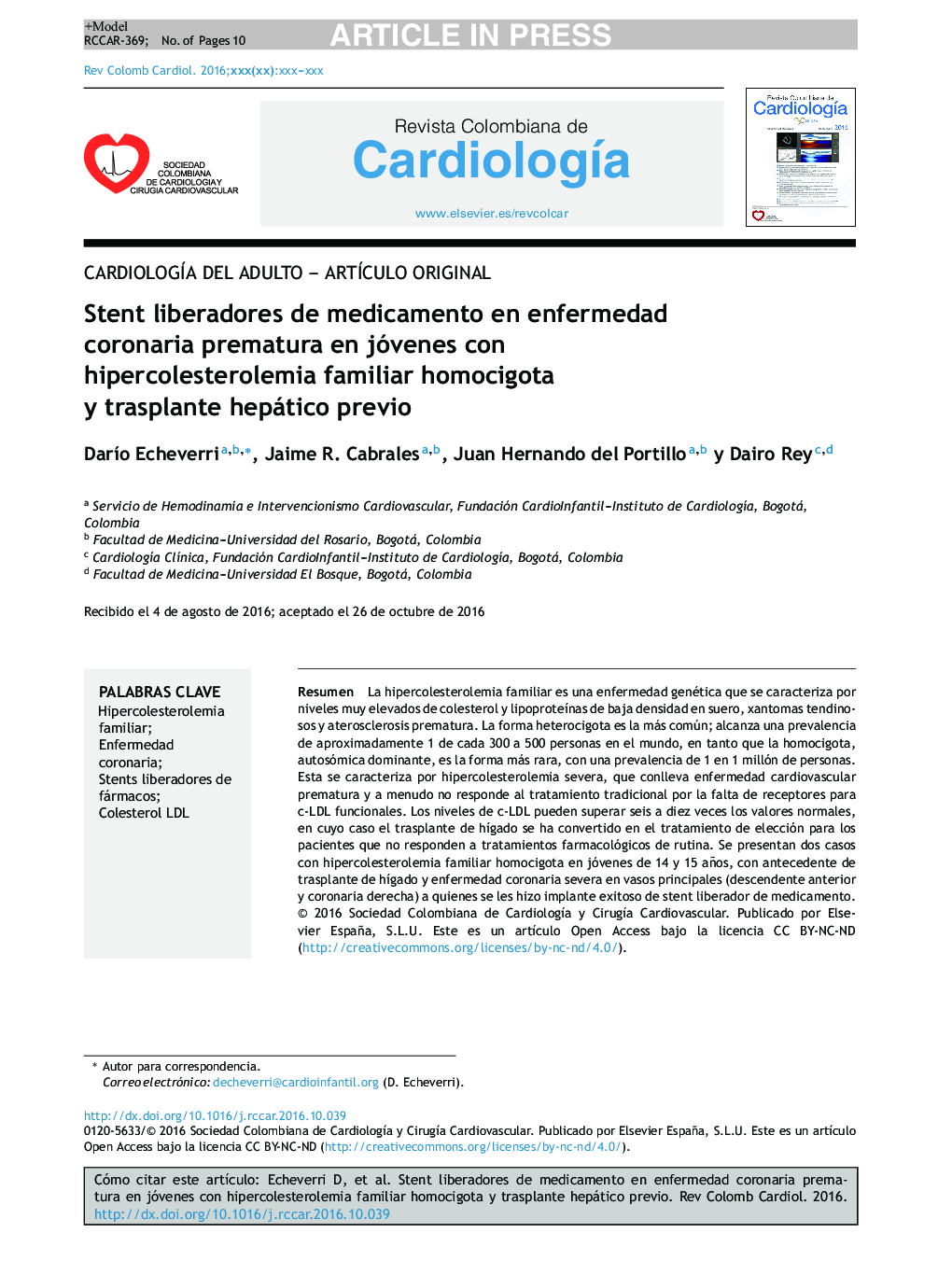| Article ID | Journal | Published Year | Pages | File Type |
|---|---|---|---|---|
| 8676239 | Revista Colombiana de Cardiología | 2017 | 10 Pages |
Abstract
Familial hypercholesterolemia is a genetic disorder characterised by very high cholesterol and low-density lipoproteins serum levels, tendon xanthomas and premature atherosclerosis. Heterozygous form is the most common, with a prevalence of approximately 1 out of 300 to 500 people worldwide, whereas the homozygous, autosomal dominant, is the rarest form, with a prevalence of 1 out of 1 million people. It is characterised by severe hypercholesterolemia leading to premature cardiovascular disease, and it often does not respond to traditional therapy due to the lack of receptors for functional LDL-c. LDL-c levels can exceed between six and ten times the normal values, in which case liver transplantation has become the treatment of choice for patients who do not respond to routine pharmacological therapies. This study presents two cases of homozygous familial hypercholesterolemia in young patients aged 14 and 15, with prior liver transplantation and severe coronary disease in major vessels (anterior descending artery and right coronary artery) who underwent successful implant of a drug-eluting stent.
Keywords
Related Topics
Health Sciences
Medicine and Dentistry
Cardiology and Cardiovascular Medicine
Authors
DarÃo Echeverri, Jaime R. Cabrales, Juan Hernando del Portillo, Dairo Rey,
